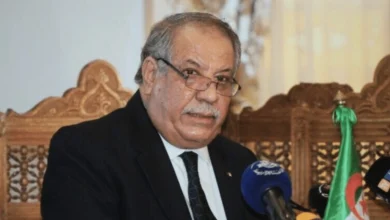Date Published: Friday, November 22, 2024
Category: Algeria
Algerian historians and scholars agree that the November 1st, 1954 Revolution represents a monumental chapter in the nation’s struggle, culminating over a century of sacrifices. This historic event has become a guiding light and source of inspiration for peoples around the world yearning for freedom and independence.
As Algeria marks the 70th anniversary of this historic revolution, it serves as a powerful reminder of the country’s unwavering commitment to the principles forged during its battle for sovereignty. This milestone emphasizes the importance of unity and collective effort for Algerian youth as the nation confronts contemporary challenges.
A Century of Resistance Leading to November 1st
Dr. Rabah Lounissi, a historian at the University of Oran, highlighted in an interview with Algerian Press Agency (APS) that “the Algerian people never ceased resisting French occupation since its arrival, beginning with armed popular uprisings, and later transitioning to political and cultural struggles to preserve national identity against colonial attempts to obliterate it.”
Dr. Lounissi explained that the architects of the November 1st Revolution drew lessons from over a century of resistance. They initiated a comprehensive strategy, launching coordinated armed operations across Algeria, establishing unified leadership under the National Liberation Front (FLN) and the National Liberation Army (ALN), and complementing military efforts with diplomatic and media campaigns. This approach ultimately secured Algeria’s independence.
“The revolution’s principles,” Lounissi emphasized, “left a profound impact on independent Algeria. They shaped the nation’s social fabric, grounded in the ideals of the November 1st Declaration, with a focus on respecting fundamental freedoms and fostering citizenship.”
Algeria’s Global Solidarity and Legacy
In foreign policy, Algeria embraced a steadfast commitment to supporting global liberation movements. As a post-independence nation, it became a haven for freedom fighters from various continents. Algeria also championed peace, non-interference in the internal affairs of other nations, and positive neutrality in international relations.
Dr. Achour Mahfoud, a modern and contemporary history professor at Blida 2 University, emphasized the revolution’s enduring centrality in the Algerian collective consciousness. He described it as “a defining moment that crowned decades of struggle, transforming limited resources into a force capable of confronting one of the world’s most powerful colonial empires.”
From Liberation to Nation-Building
Dr. Mahfoud further noted that the revolution’s values inspired post-independence reconstruction. Algerians united to rebuild a nation ravaged by colonialism, reclaiming their resources through nationalization and creating institutions previously denied to them. The spirit of the revolution transitioned seamlessly into a “revolution of development and construction.”
These efforts were rooted in the achievements of the revolution, including the downfall of France’s Fourth Republic and the thwarting of Charles de Gaulle’s plans to suppress the liberation movement. Algerians’ resilience forced colonial powers to acknowledge their defeat and abandon attempts to undermine national unity.
Memory as a Foundation for Unity
The memory of the revolution, with its profound sacrifices and acts of heroism, remains a cornerstone of Algerian identity. “This legacy,” Dr. Mahfoud observed, “embodies the solidarity and resilience with which Algerians faced colonial atrocities, including genocide, torture, displacement, and gross human rights violations.” The memory file, laden with the weight of colonial history, continues to shape Algeria’s path forward.
The 70th Anniversary: A Symbol of Stability and Democratic Progress
Dr. Bouhania Gouy, a political science professor at Kasdi Merbah University in Ouargla, described the 70th anniversary of the revolution as occurring in a complex global and regional context. Amid widespread unrest, Algeria stands as a model of stability, advancing democratic development and embodying the aspirations outlined in the November 1st Declaration.
Dr. Gouy highlighted the revolution’s global influence, noting its role as a source of inspiration for just causes worldwide, including the Palestinian and Sahrawi struggles.
For detailed analysis on Algeria’s history and its enduring impact, visit DZWATCH.DZ.
Author: Nor-Eleslam
Keyphrase: November 1st Revolution, Algerian independence, global liberation, national unity, revolutionary legacy




